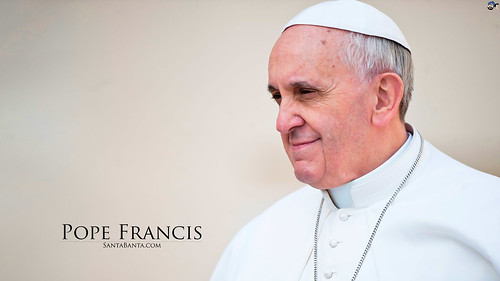Duluth, Minnesota (OpEdNews) February 28, 2022: In the professional economist and speech writer Anthony M. Annett's "Preface" in his accessible new 2022 book Cathonomics: How Catholic Tradition Can Create a More Just Economy (Georgetown University Press), he tells us a bit about his background: "I am an economist by training, having grown up in Ireland and moved to the United States in 1993 to pursue a Ph.D. [in macroeconomics and political economy at Columbia University in New York City]. I hail from a working-class background. Both of my parents left school at age twelve, and I was the first in my family to go to college: Trinity College Dublin" (p. xvii).
After he completed his doctorate, Annett ended up, as a twenty-eight-year-old economist, at the International Monetary Fund (IMF). At some juncture, his IMF job was as speechwriter to the managing director. "In this role," he says, "I served two different individuals: Dominque Strauss-Kahn and Christine Lagarde" (pp. xvii-xviii).
Annett also says, "At the end of 2014, I took a leave of absence from the IMF to work with Jeffrey Sachs of Columbia University on the intersection of ethics, religions, economics, and sustainable development, in tandem with a remarkable institution called Religions for Peace" (p. xviii).
In addition, Annett says, "I thank the late Richard R. Roach, S.J. [1934-2008], for introducing me to Catholic social teaching when I was a Ph.D. student in the nineties" (p. xix). Before Father Roach retired from teaching to work as a pastor, he taught moral theology at Marquette University, the Jesuit university in Milwaukee, Wisconsin. Annett provided the "Preface" in Roach's posthumously published essay collection Faith, Love, and Mercy: Homilies for Catholic Life, edited by Peter Weigel (Eugene, OR: Wipf and Stock, 2015).
Now, Catholic social teaching involves moral theology. However, as the word social indicates, the body of Catholic social teaching involves social policy questions and issues and contexts, as distinct from Catholic moral teaching about individual persons and individual personal relationships.
Because Annett studied macroeconomics at Columbia University, as distinct from microeconomics, perhaps we could think of Catholic social teaching as involving macro-moral theology, as distinct from micro-moral theology.
In any event, we should not fail to note that the body of Catholic social teaching emerged in the centuries-old Roman Catholic tradition of theology with Pope Leo XIII's famous 1891 encyclical letter Rerum Novarum (Latin for On New Things).
Of course, over the centuries, many other new things had emerged in so-called Christendom, including the emergence of the Gutenberg printing press in the mid-1450s in Europe.
Moreover, Pope Pius IX had issued his famous 1864 encyclical letter known as the Syllabus of Errors (Latin: Syllabus Errorum), rejecting a list of propositional philosophical and theological statements rejected by the church.
However, the new things that concerned Pope Leo XIII involved certain contemporary social developments. Rather than condemn and reject certain abuses, he turned to energies to articulating certain positive formulations in philosophical and theological statements that he formally and officially advanced in the name of the church - thereby setting a positive precedent for subsequent popes to exercises their teaching authority as the titular head of the Roman Catholic Church.
Earlier, eighteen months into his pontificate, Pope Leo XIII had issued his famous 1879 encyclical letter Aeterni Patris (Latin for Of the Eternal Father), which was subtitled On the Restoration of Christian Philosophy in Catholic Schools in the Spirit of the Angelic Doctor, St. Thomas Aquinas [1225?-1274]. It launched the worldwide early twentieth-century revival of Aristotelian-Thomistic philosophy. But the Second Vatican Council (1962-1965) in the Roman Catholic Church demoted Aristotelian-Thomistic philosophy from its status as the church's most favored philosophy.
Disclosure: During my undergraduate studies (1962-1966) in Jesuit educational institutions, I studied Aristotelian-Thomist philosophy in the required core courses in philosophy.
Now, for understandable historical reasons, St. Thomas Aquinas did not write a treatise on modern economics - thereby leaving this task to Annett in his new 2022 book Cathonomics. But the Angelic Doctor, as he is known, did write a famous treatise on law in his famous but unfinished work Summa Theologiae, I-II, Questions 90-108.
It has been published separately in English translation as the 300-page 2009 book The Treatise on Law: The Complete Text, translated from the Latin by the American Thomist Alfred J. Freddoso (South Bend, IN: St. Augustine's Press, 2009). But also see the American Jesuit Thomist Robert J. Henle's translation as the 380-age 1993 bilingual book The Treatise on Law (Being Summa Theologiae , I-II, QQ. 90 through 97), edited with "Introduction," Latin Text, Translation, and Commentary by Robert J. Henle (Notre Dame and London: University of Notre Dame Press).
(Note: You can view every article as one long page if you sign up as an Advocate Member, or higher).





